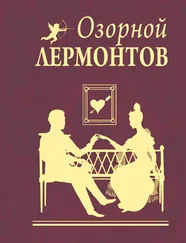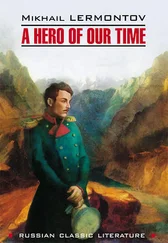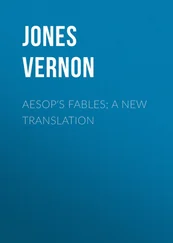“Tomorrow will be glorious weather!” I said. The staff captain didn’t say a word and pointed his finger at the high mountain that was rising in front of us.
“What is it?”
“Gud Mountain.”
“And what is that?”
“See how it’s smoking.”
And it was true, Gud Mountain was smoking. Light little currents of cloud were creeping down its slopes, and a black storm cloud sat at its summit, so black that it looked like a blot on the dark sky.
We could just make out the posting house, the roofs of its surrounding saklyas, [4] saklyas: Caucasian mountain huts.
and their welcoming little fires twinkling at us, when suddenly a damp, cold wind blew in, a droning sound started in the gorge, and a drizzle began. I barely managed to throw on my felt cloak [5] Lermontov uses the word burka here, a felt cloak worn in the Caucasus.
as snow began to pour down. I looked over at the staff captain in deference…
“We’ll have to spend the night here,” he said with vexation. “You’ll never get across the mountain in this sort of snow-storm. Well? Have there been any avalanches on the Krestovaya?” he asked the cart driver.
“No, there haven’t,” replied the cart driver. “But there’s a lot hanging up there—a lot.”
We were led off to spend the night in a smoky saklya since there was no bedchamber for travelers stopping at the station. I invited my fellow traveler to drink a glass of tea with me, for I had with me a cast-iron tea-kettle—the one and only comfort on my travels in the Caucasus.
The saklya was pinned to the rock-face on one side. Three slippery, wet steps led to its door. I felt my way through the entrance, and stumbled upon a cow (to these people, a cow-shed is easily substituted for servants’ quarters). I didn’t know where to put myself: there were sheep bleating in one corner, a dog was growling in the other. Fortunately, a dim light shone from the side and helped me to find another opening, which resembled a door. It gave onto a rather entertaining scene: a wide saklya, the roof of which was propped up on two soot-covered posts and filled with people. A little fire chattered, which had been laid on the bare earth in the center of the room; smoke was being forced back through an opening in the roof by the wind, and it unfurled throughout the room in such a dense shroud that I couldn’t make out my surroundings for a long time. Two old women, a multitude of children, and a lean Georgian sat by the fire, all of them in rags. There was nothing to do but take shelter by the fire and begin to smoke our pipes. Soon the tea-kettle started to fizz with friendliness.
“A wretched people!” I said to the staff captain, pointing to our dirty hosts, who were looking at us silently, sort of dumbfounded.
“Such dim-witted folk!” he replied. “Can you believe it? They can’t do anything, aren’t capable of any kind of learning! At least our Kabardin or Chechens, though they are robbers, and paupers too, they make up for it by being daredevils. But these ones have no affinity for weapons: you won’t find a decent dagger on any of them. Genuine Ossetians!”
“Were you in Chechnya for a long time?”
“Yes, I was posted there for about ten years with my company in the fortress at Kamenny Brod—do you know it?”
“Heard of it.”
“Well, old fellow, let me tell you, we were fed up with those bandits! Now, thank God, it’s quieter. But there was a time when if you took a hundred steps beyond the ramparts, there was a shaggy devil lying in wait. If you even stopped to gape, you’d have a lasso around your neck or a bullet in the back of your head. Oh, they’re clever ones…!”
“So, you’ve had many adventures I would think?” I said, my curiosity excited.
“How could I not?! Indeed I have…”
Here he started to pluck at the left side of his mustache, hung his head, and became pensive. I wanted terribly to extract some little story from him—a desire characteristic of all those who travel and write. Meanwhile, the tea was brewed; I took two little traveling glasses from my valise, filled them and set one of them in front of him. He took a sip and said, as if to himself: “Yes, I have!” This exclamation gave me more hope. I know that old soldiers of the Caucasus love to talk, to tell tales; and they rarely get the chance to do so. This one had been in post for five-odd years somewhere in the sticks with his military company, and not once in those five years did anyone say “good day” to him (because a sergeant-major always says “Preserve your health”). And there was plenty to chat about: the local peoples were savage, a curious people; there was danger present every day; miraculous events occurred; and you couldn’t help but regret that so little of this gets recorded.
“You wouldn’t like to add some rum?” I said to my interlocutor. “I have white rum from Tiflis. It’s cold outside now.”
“No, thank you sir, I don’t drink.”
“Is that so?”
“Yes, that’s right. I’ve taken an oath. You see, once when I was still a second lieutenant, we had a little too much to drink between us, and at night the alarm sounded. So we merrily turned out in front of the soldiers in our merry state, and we got it in the neck when Alexei Petrovich found out. Good God how furious he was! He nearly had us court-martialed. There’s no doubt that if you spend a whole year without seeing a soul, and you add vodka to that, you’ll be a missing person!”
Hearing this, I almost lost hope.
“Yes, and there’s the Circassians,” he continued. “As soon as they drink up the bouza [6] bouza: A kind of fermented alcohol made from millet.
at a wedding or funeral, the knives come out. Once I barely managed to walk away intact, even though I was the guest of a peaceable prince.” [7] peaceable prince: The term for a local chieftain who took no sides in the war between the Caucasian tribes and the Russians.
“How did that happen?”
“Well,” he packed his pipe, drew on it, and began his account, “allow me to explain. I was posted at the fortress near the Terek River with my company—almost five years ago. Once, in the autumn, a transport arrived with provisions. And in that transport was an officer—a young man, of about twenty-five years. He presents himself to me in full uniform and announces that he has orders to remain with me at the fortress. He was such a thin and fair thing, the full-dress uniform he wore was so new, that I guessed then and there that he hadn’t been long in the Caucasus.
“‘Would I be right in saying,’ I asked him, ‘that you have been transferred here from Russia?’
“‘Indeed, Mr. Staff Captain,’ he replied.
“I took him by the hand and said: ‘Very pleased, very pleased to meet you. You will find it somewhat tedious… but you and I will live together at ease. Yes, please, call me simply Maxim Maximych, and please—why this full uniform? Present yourself to me in your military cap.’
“They took him to his quarters and he settled at the fortress.”
“And what was his name?” I asked Maxim Maximych.
“His name was… Grigory Alexandrovich Pechorin. A wonderful fellow, I dare say. Only a little strange too. For example, he would spend the whole day hunting in a drizzling cold that would freeze and exhaust most others to the bone—but to him it was nothing. And then, at other times, he would be sitting in his room, and the wind would blow, and he’d swear to you that he was catching cold. A shutter would bang and he’d shiver and go pale. But I can attest that he would go out after wild boar, one on one. Sometimes whole hours would go by without a word from him, and then other times, he’d start telling a story, and immediately your belly would ache from laughing… Yes, he had a good deal of great oddities, and he must have been a rich man—he had so many expensive things!”
Читать дальше
Конец ознакомительного отрывка
Купить книгу
![Михаил Лермонтов A Hero of Our Time [New Translation] обложка книги](/books/27671/mihail-lermontov-a-hero-of-our-time-new-translati-cover.webp)










